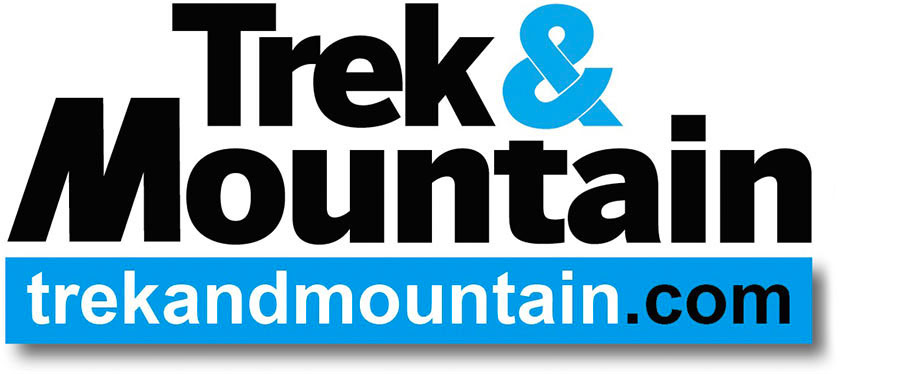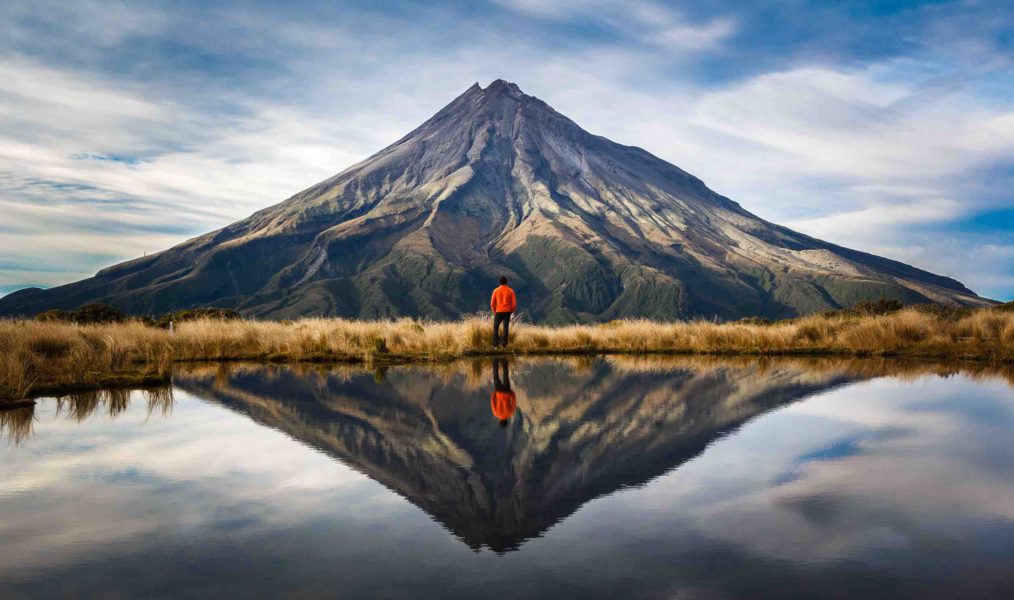There is a fashion right now for blog posts telling you that your dream/adventure/expedition is totally possible. Just Do It! Throw your fears to the wind! Believe in yourself! Stop dreaming, start doing! The cliches abound, all of them look great pasted on a sunrise stock photo in a jazzy font, and uploaded to Instagram.
Underlying all of them is the same message: the only thing holding you back is yourself. If only you had more confidence and courage, you too could be living a life a grand adventure. For some it’s an inspiring call to action. For others it’s a demoralising judgement – your failure to live this exciting life is entirely your fault.
Lost in the snappy one-liner is the truth that we start from very different places. People tossing out inspiring messages often fail to acknowledge that their ability to do this is partly founded in life advantages resulting from pure luck. People failing to meet these rousing calls can overlook that systemic disadvantages they face.
Money matters. It makes everything easier. Whether money comes from family, luck in the property market, cashing in your stock options at the right moment, starting a company and selling at the peak of a wave, twenty years working as an investment banker – money (and the business contacts that frequently come with having money) makes it all simpler.
Grand slam ‘fastest’ records (mountains plus poles) often have more to do with cash than talent. It takes money to pay for the flights from one continent to the next, to pay some else to have done all the ground arrangements, to pay to have guides waiting to escort you up the peak.
‘Youngest’ records also tend to come from money. The teenagers involved have seldom come up with the funds themselves. But money isn’t just cash in the bank. It’s also about understanding how to access other people who have resources. Cold-calling for sponsorship is difficult. Prior connections always make it easier. That may be your colleagues and contacts in business or your CEO-level parents calling in a few favours with their friends.
Plenty of blog posts extol the virtues of cheap adventure, throw caution to the wind and set forth with £25 in your pocket. It’ll all work out! It might…. But in the unlikely event that all your possessions are stolen, or you are injured or assaulted – what is the back-up plan? For many people it involves a tearful phone call back home. Having long-suffering parents with the money (and the willingness) to bail you out of trouble is a huge asset, and it’s not one that everybody has.
Being able to return from your multi-year adventure and move back into your parents’ home while you figure out your next move is another undervalued asset. And it’s not only parents quietly providing support. Many a mid-life career change, swapping working for ‘the man’ for a life of adventure, is backed-up by a tolerant partner who continues to hold down a ‘normal’ job.
Parents don’t just offer money and shelter. When yet another youngest age-record falls, it’s always interesting to see whether the parents are Arctic or mountain guides. Any level of outdoor activity in your childhood will put you ahead of the pack. An outdoor-focused upbringing will put a young adult 20 years ahead in skills and confidence compared to an exclusively urban childhood.
Advantages aren’t only about family wealth or outdoor upbringing. Your generation, your culture, your country of residency and citizenship all bestow advantages or limitations. Tertiary education is where many young people join outdoor clubs and get their first taste of adventure. Did you come from a generation or live in a country where that education was free? Where you able to spend your university holidays going off on trips and gaining experience, or did you have to work for money or do unpaid internships to bolster the chance of getting the job to pay off your student debt?
Some countries require that student loan repayment begins immediately after graduating, others set an earning threshold before repayment starts but interest adds up in the interim. Either way, it makes it harder to take off on an adventure rather then seek out a job. And that’s without considering whether you need to earn to help out younger siblings with their education or family with their living costs.
Other advantages come from the country where you live. There are many adventure grants available but only a few are open world-wide. The majority are available to citizens or residents of a small number of countries – the UK, Australia, New Zealand, USA and Canada.
Which passport(s) you hold makes a huge diference. As a South African, there is a conversation I can have with Russians and Argentinians about visas that leaves passport holders from the EU and North American countries bewildered. Grab a bike and head off across Europe / Asia / the world – that’s a lot easier if you can access visa-free or visa-on-arrival travel. Germans can travel visa-free to 176 out of a possible 218 destinations. Citizens of Syria, Pakistan, Iraq and Afghanistan have that sort of access to fewer than 30. It’s not just about spontaneity, it’s about money. Visa fees, combined with having to visit a consulate in a capital city for face-to-face interviews and/or fingerprinting, carries real costs.
Sponsorship is citizen-specific too. Sponsors tend to support people from their own country. Media report on their own nationals and the topics that interest their readers. If you are a citizen of a country with no history of adventure and no infrastructure around it, you are at a massive disadvantage. It’s not only money and media. It may be far harder to learn the skills and source the equipment needed to do your adventure safely.
Of course, it can work the other way. In an adventurous country, many of the ‘firsts’ for your nationality have probably been done. In a non-adventure country, you still have a chance to be the first X to do Y – if you can gain the skills and find the funding.
To raise your hand for adventure, you have to be able to imagine yourself in that space. You may not come from a culture that values outdoor achievement. Certain Western cultures have been romanticising the wilderness for generations. Other cultures have little interest, putting far more value on upgrading to comfortable urban living rather than on roughing it for no good reason. It’s hard to stay motivated and focused on your mad plans if you don’t have people around you who share your passion and support your vision.
Seeing role models who resemble you can help too. Browse through the covers of adventure magazines. Look at the athletes sponsored by outdoor brands. Watch the faces on the speaker stage at the next adventure festival that you attend. Search Google Images for adventure-related keywords. How long does it take you to find the not-white face? Or not-male, not-slim, not-young face? They are out there, but in much smaller numbers.
Women adventurers have begun to fight the gender imbalance by pulling together assertively in all-women Facebook groups, online magazines and adventure festivals, and brands are beginning to respond. But the other kinds of gaps remain very noticeable.
There are a whole set of accidents of birth that can be very helpful. English is now the second language of choice of most of the planet and over 80% of the information stored in the world’s computers is in English. You will have an easier time both researching and executing your adventure if you have a good command of English.
Having a white skin helps. In many countries it gains you an extra level of respect. It may be almost unconscious on both sides – white-skinned people expect to be treated well, brown-skinned people have learned that whites need to be handled with care. A white skin may earn you the clueless-foreigner pass, or (as a woman) the honorary-man pass. However, a brown skin in a predominately white-skinned country brings the assumption you are a (possibly unwanted) refugee or economic immigrant, rather than a tourist or traveller.
Being a man helps too. Men can fear assault while travelling. Women can fear assault and then add rape on top. Of course it’s a generalisation. Man can be sexually assaulted. Plenty of women travel alone through most of the countries of the world in complete safety. That doesn’t make the fear of sexual assault carried by women any less real. Or the experience of endless harassment in certain countries any less exhausting.
Looks matter as well. There are men ready to claim that attractive young female adventurers get attention that has more to do with how they look that with what they’ve done. Women can retort that they lose out on sponsorship because they don’t fit the ‘adventure look’. Or that their talent gets ignored if they don’t have the looks to match it.
However, men don’t escape this trap. There is a certain kind of ‘Indiana Jones’ ruggedly handsome image that is associated with adventure. Men with that kind of appearance are more likely to get onto a magazine cover, into an advertising campaign or on television as a presenter.
And all of this supposed that you were born into a body that can set adventure records. Not everyone has a mindset that enjoys a suffer-fest of striving, travelling alone and dirt-cheap living. Even for the able-bodied, it can feel like a moral failure to step down from a project when you see people around you who seem to have more ‘grit’ and ‘drive’.
With ‘human-powered’ unsupported adventure in fashion for sponsorships and the new generation of adventure grants, there are many people who are born with or develop through life physical or mental disabilities that don’t make that kind of travel possible.
To top it all off is an element of pure luck – being in the right place at the right moment. Some element outside your control meant your adventure found a sponsor, attracted media attention, caught the public imagination. After that initial boost it then becomes self-perpetuating, as your profile and track-record make it easier to find further opportunities.
Of course you need to have done the work to be in the right place to seize that lucky break, and you need to work the opportunities that then come your way. But you can also do all the work and never get the break.
The final truth to keep in mind when comparing yourself to other adventurers is that they started building up their reputation a decade ago, or longer. It’s hard to look back and appreciate how far they’ve come.
None of these are reasons why you can’t do it. But they are factors that can impact how difficult it may be for you and how long it may take. You will be further down the road on your adventure path by being realistic about the assets you already have, the disadvantages you need to overcome, and the opportunities that you can access.
Look to the adventurers who are already doing well for inspiration and ideas. But don’t use them as a yardstick and then beat yourself up for your inability to equal their success. Your only comparison should be with yourself. The measure that matters is where you are a year from now, and five years from now, based on the work you start doing today.








Comments
Pingback: Ultramarathon Daily News | Fri, Dec 8 | Ultrarunnerpodcast.com
Very well written, without any victim mentality. This article can be applied to other topics as well and would make just as much sense. Thanks for illustrating in words what the average Joe adventurer experiences and the challenges they face.
Good reflection. I think that it is sad that the burgeoning industry of “made for airport bookstore” self-help books and television self-help gurus are simply getting rich off, firstly, defining for others what success is and, secondly, making people feel like they simply are not ambitious/idealistic/courageous enough. The other thing that is seldom acknowledged when it comes to success in adventure sports is the enormous sacrifice that many make in other areas of their lives through the single-minded focus needed to achieve a goal. Some make the choice consciously and others don’t realize it until things fall apart.
Hi Cathy
I agree with Tim – a very well written piece! It puts things into perspective.
I’ve been fortunate to have a few really good ‘adventures’. Money definitely played a big part…getting back to ‘normal’ life can take a while once they’re completed though and no one ever speaks about that transition which I personally found quite depressing.
With the popularity of social media I enjoy reading about other people’s adventures and look forward to hearing more.
Thanks Tracy x
Good to read something a bit different – I discovered adventure at 40 and i sometimes feel I am playing catch up with my younger walkers, climbers, canoeists- but I am enjoying the journey, even if it is slow one – as a mum of 3 kids it’s hard fitting in stuff but worth it.
USA male, adventure company owner, white skinned adventurer here. I really, really appreciated your article and thoughts. I probably have made some of the imploring posts to which you refer, trying to motivate people to take one of our trips.
Will keep all your observations in mind in the future. thanks.
Having spent more than a few weeks in South Africa volunteering in townships over the last 10 years, I couldn’t agree more. We have friends from SA occasionally come and stay with us, but it’s a nightmare for them (and us). We ALWAYS get a phone call from some pompous idiot in immigration who makes us feel like we are the ones in the wrong, and why are we inviting these “people” to come and stay with us.
I’m not rich by western standards, but I’m also under no illusion that as a UK citizen I have immense freedoms. Working with small NGO’s in townships never ceases to remind me of that. But I do it because it has opened my eyes to the strength of the human spirit, and I have made friends who are as close as my family are to me.
I am living my dream, and fortunate to do so. But the article is the first I’ve ever read that does make it clear that I’m able to do it largely as an accident of birth.
So perhaps with that in mind, travel also allows us to do something for others that changes the world in small and subtle ways, and for me, that’s all I can do.